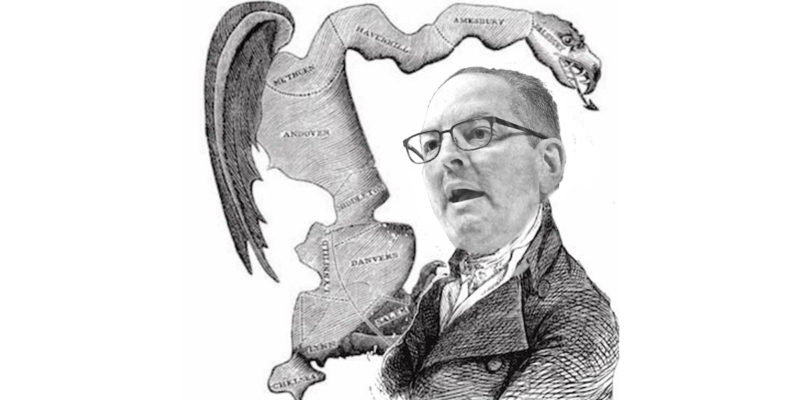We learned last night that Governor John Bel Edwards had vetoed the congressional map passed by both houses of the legislature (Senate Caucus Chair Sharon Hewitt’s Senate Bill 5 and Speaker Clay Schexnayder’s House Bill 1) a few short weeks ago. We can only speculate why he chose to take this action by releasing a prepared statement in the dark of night, but considering the Democrats’ false (or at best incomplete) redistricting narrative over this past year, one could well understand the Governor’s reluctance to take this action in the full light of day.
His statement was as follows: “I have vetoed the proposed congressional map drawn by Louisiana’s Legislature because it does not include a second majority African American district, despite Black voters making up almost a third of Louisianans per the latest U. S. Census data.”
And that has been the semi-official narrative of the Democrat Party through several redistricting cycles. According to the Democrats and their media flunkies, redistricting is a simple exercise in mathematics – in Louisiana, “almost” one third of the populace should equate to one third of the congressional delegation, correct? Well, no. Actually, there are other factors to be considered, and no, redistricting is anything but a simple mathematical problem.
Race as a factor only entered into the redistricting calculus with the advent of the Voting Rights Act in the 1960’s. As laudable a goal as the Voting Rights Act was intended to achieve, this act has since become the classic showcase in all of American politics of the law of unintended consequences. Nor was the Voting Rights Act ever intended to pre-empt far older considerations in redistricting which date from, or even predate, the founding of the American republic. And just what are these other considerations?
POPULATION EQUALITY is predictably the most important. “One man, one vote,” or as we now say, “one person, one vote” is the essence of democracy and is accordingly enshrined in the constitutions and laws of the federal government and every state. Even here, however, some small leeway in district populations is allowed for, perhaps five percent or so.
COMPACTNESS & CONTIGUITY are also very important considerations for obvious reasons. A district’s shape should ideally consist of a geographically consolidated area, with a somewhat geometrical shape and an identifiable center, and no part of the district should be completely isolated from the rest of the district. Now God’s geography can certainly preempt man’s political objectives, particularly in a state like Louisiana, but compactness and contiguity nevertheless remain desired goals wherever possible.
POLITICAL SUBDIVISIONS & COMMUNITIES OF INTEREST have always been important redistricting considerations. Newly created political subdivisions are necessarily engrafted onto pre-existing ones, and people will have developed an identity and loyalty to the older districts which should be taken into consideration. Let’s use a somewhat different context, but the result is very similar: Most people consider themselves members of a community, and members of a community have mutual interests. The folks within a community of interest generally share a background or characteristics (such as social, cultural, historical, racial, ethnic, or economic affiliation) that may be relevant to their legislative representation, and this fact should also be taken into account during the redistricting process.
Advertisement
Yet the Democrats have focused almost exclusively on one and only one factor, race, as the sole rationale for creating new districts at every level of government. That should come as a surprise to absolutely no one, as they have advertised their intentions ad nauseam for years. The fact is that all of Louisiana’s congressional districts have a population base in a major city (only the sole minority district, the 2nd, has been contorted to snake through most of New Orleans and part of Baton Rouge), and that is a very reasonable way to design congressional districts.
The congressional redistricting plan passed by our legislature made only modest changes to the existing districts. It is eminently defensible and should be defended to the utmost. So here we are, certainly on our way to the courts and hopefully ready to initiate a veto-override session in the very near future. No conservative, regardless of party affiliation, should hesitate for a moment to enter the fray, or better yet, to lead the charge.
In the meantime I would like to express my thanks to our Republican delegation in the legislature, particularly Speaker Clay Schexnayder and Rep. John Stefanski in the House, and President Page Cortez and Senate Caucus Chair Sharon Hewitt in the Senate. Well done!
We are fighting a Governor now in the waning years of his administration, and John Bel will continue to be severely weakened by the ongoing bloodletting of the Ronald Greene tragedy and cover-up. He may even soon be facing impeachment. If this Governor has forced a veto over-ride session upon the legislature, then so be it.
LOUIS GURVICH, Chairman
Republican Party of Louisiana
Advertisement
Advertisement

